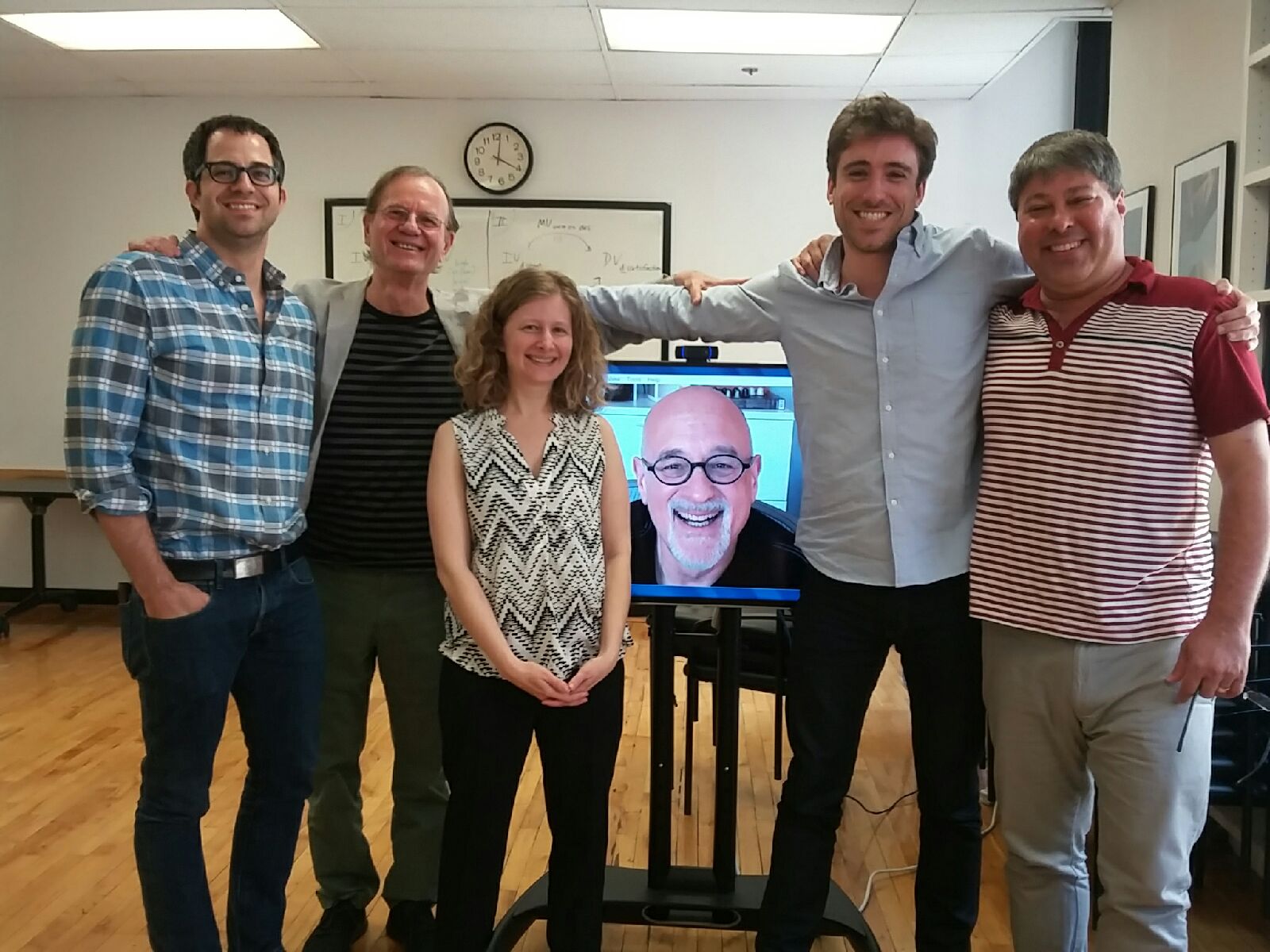{home}
I am the founding director of the Beacon Project at More in Common: a multi-year initiative to build a new civic vision that can speak to America’s Exhausted Majority.
We have exciting new developments planned for the Beacon Project in Fall 2025. Stay informed!
My work uses insights from social psychology to understand and bridge political divides. Reports I helped lead (Hidden Tribes: A Study of America’s Polarized Landscape and The Perception Gap: How False Impressions are Pulling Americans Apart) have been highlighted in multiple presidential campaigns and featured in over 3,000 news articles, including on the front page of the New York Times. I have given interviews about this research on C-SPAN’s Washington Journal and BBC World News, and co-authored an opinion piece about the work in the New York Times entitled “The Psychology of Political Polarization.”
My academic research has been published in leading scientific journals such as Nature Communications, Proceedings of the National Academy of Sciences, and Nature Human Behavior.
I live in New Orleans with my wife and 3-year old daughter.
For media, speaking inquiries, or questions about my work, please contact daniel@moreincommon.com. For questions about the Beacon Project, please contact beaconproject@moreincommon.com.
My Story
While I have always been fascinated by life’s “Big Questions”—about consciousness, morality, knowledge, and human nature—one in particular has moved me since the beginning: How do we understand reality? Unfortunately for humans, the instrument we must use to answer this question—the brain—is nothing more than a bundle of neurons, perched atop our bodies like a bowling ball on a candlepin. We are geared toward sex and survival, not truth and accuracy. It’s like peering out at the night sky through a telescope with a distorted lens: to understand what you are looking at, you first have to see how the glass is bent.
For this reason, psychology is more than the study of human nature: it’s also an attempt to comprehend reality itself. Like any good scientist, if we want to understand the world, we first have to understand our own instruments. And understanding how our mental biases shape our understanding of the world is crucial for fostering healthy communities and societies.
Making progress in this quest is the central goal of my career. As an undergraduate at Williams College, I double majored in philosophy and psychology, inspired by the great intellectuals of the past (William James, Aristotle, Newton) who similarly blended philosophical and empirical methods. My senior thesis, which won the department’s highest research award, explored how feelings of scarcity impact people’s perception of time.
Solo jazz piano performance, NYC
After college, I realized (correctly!) that there is no better time to explore very different interests. So I moved to Paris to study jazz piano at the Centre International de la Musique. During this time I gained an appreciation for how culture and language shape how people perceive the world. You can find my solo jazz piano EP, which was released in 2022, on all streaming services.
After spending eighteen months immersed in the sights and sounds of the city, I wanted to better understand how people live on the other side of the economic spectrum. So I moved to Nicaragua, where I taught 7th and 8th-graders at a school called the Pearl Lagoon Academy of Excellence. My class, entitled “Thinking Critically about our Changing World,” used insights from philosophy, economics, ecology, and psychology to give young people the perspective to make good life decisions. In addition, an after-school soccer program I initiated was granted funding from USAID for supplies and a long-term coach’s salary.
7th and 8th graders from Pearl Lagoon’s Academy of Excellence
In 2011, I enrolled in graduate school in social psychology at New York University under the mentorship of professors Yaacov Trope and Jay Van Bavel. My research focused on “moral flexibility”: how people’s views about right and wrong change according to their group membership. I wrote about this research, which could help reduce bias in our communities and organizations, in a New York Times article entitled “The Roots of Implicit Bias.”
My dissertation committee: (from left) Jay Van Bavel, Yaacov Trope, Marjorie Rhodes, Dan Gilbert, John T. Jost
After graduate school, I pursued postdoctoral research at Yale University with professor Molly Crockett, studying how transformative experiences at multi-day mass gatherings (such as the Burning Man festival in central Nevada) can expand people’s “moral circle.” These results show how intense social experiences—from music festivals to corporate retreats—can change how we see and interact with friends and strangers alike.
In 2019, I started a postdoctoral fellowship at the Psychology Department and the Wharton School at the University of Pennsylvania. With generous grant support from the Templeton Foundation and the Center for the Science of Moral Understanding, my colleagues and I used computational methods to explore the “Am I the Asshole?” forum on Reddit—arguably the largest compendium of everyday moral dilemmas ever created. Our results are currently under peer review.
Discussing More in Common’s “Perception Gap” report on BBC World News, June 24th, 2019
In an effort to do my part to counteract growing polarization and social fracturing in America and around the world, in 2024, I founded the Beacon Project at More in Common. The Beacon Project is a “civic moonshot” leverages insights from psychology, political science, and data science to identify a new civic vision for America.
Invited speaking presentation in Bahia, Brazil at Knowledge Exchange Sessions, August 2022.
In the coming years, I plan on continuing to use the tools of social science to help people build better relationships, communities, and societies. Through speaking, researching, writing, and teaching, I hope to do my part to help humanity realize the best version of itself.




